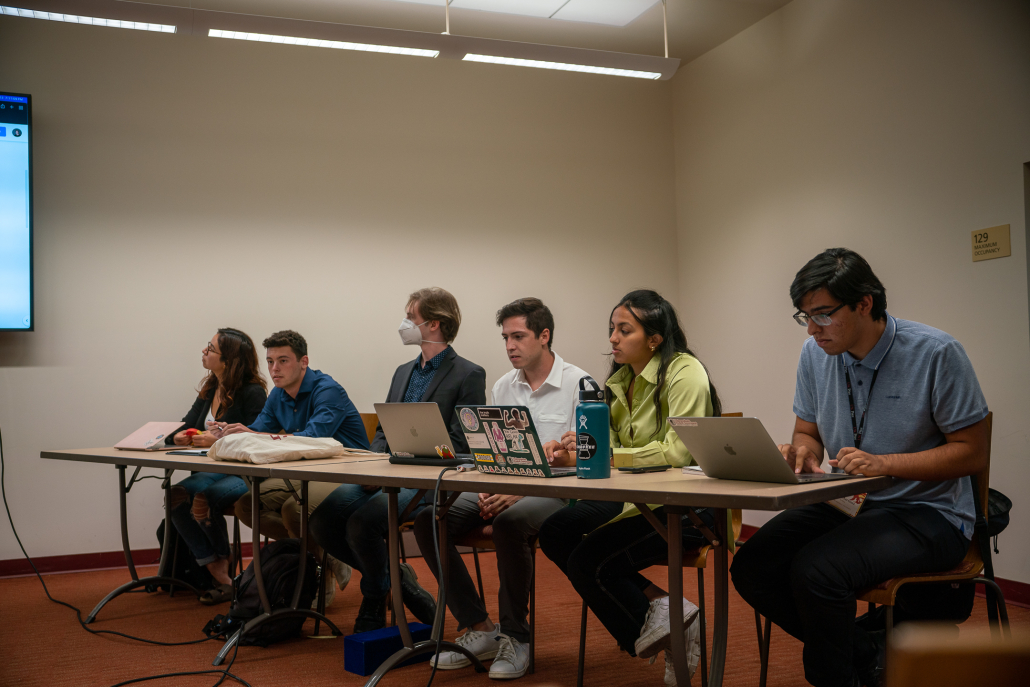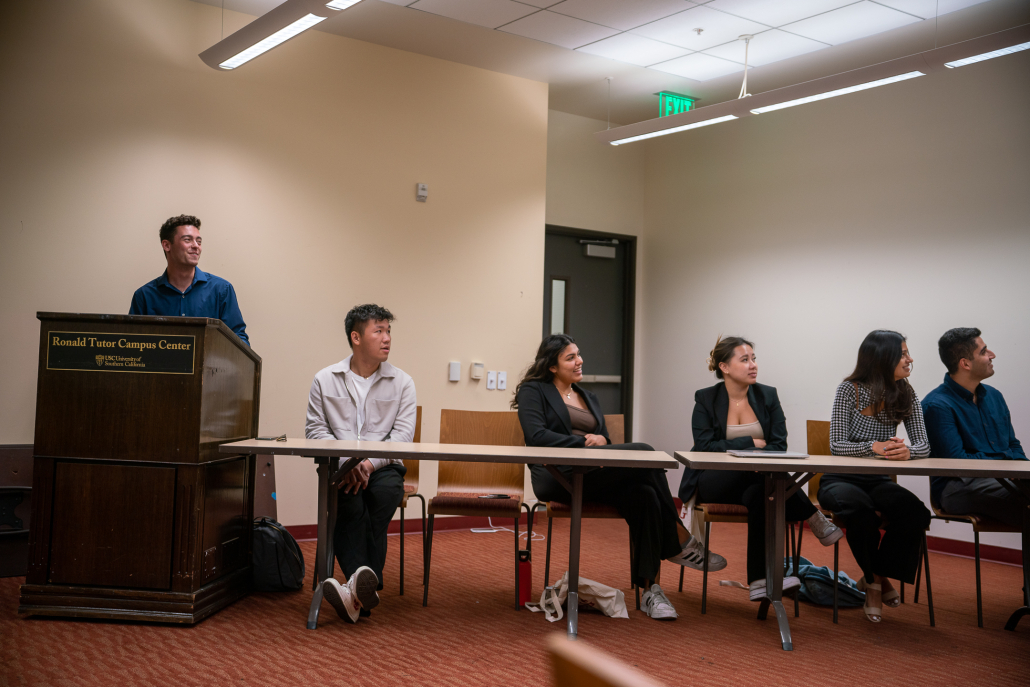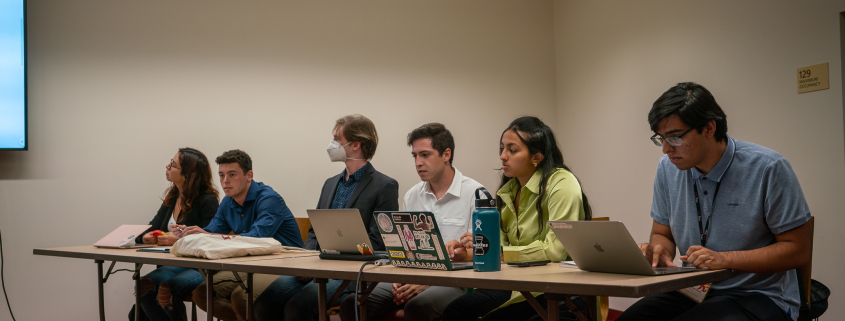USG senators call for University action on disaffiliated frats

The Undergraduate Student Government discussed a revised meal plan donation program and yearly goals, and called for working action regarding Greek life disaffiliation at Tuesday’s Senate meeting.
Senator Aidan Feighery presented amendments to resolutions concerning disaffiliated fraternities to protect vulnerable student groups, namely freshmen and transfers.
This comes after ten of fifteen USC fraternities having publicly denounced affiliation with the school at the time of publication, forming the independent University Park Interfraternity Council.
Feighery has co-sponsored the four amendments — which call on the University to study the ramifications of disaffiliation, host town hall events and generate more information regarding disaffiliation for both students and parents — with Senator Nayva Singh, who was absent from the night’s meeting.
“I’ve had discussions with University administrators, such as the head of fraternities and leadership development,” Feighery said. “Every single item that we’ve listed in the results section is something that we know is actionable for the University and that’s something that we’ve had conversations [about] in order to make sure it’s possible.”

Chief programming officer Jillian Fallon presented recent and upcoming events put on by USG affiliates: Both the Transfer Study Assembly and Political Student Assembly will host general meetings this Wednesday for students who are interested.
Senator Yoav Gillath discussed his yearly goals, including the distribution of sunscreen and menstrual products to unhoused individuals.
By working with Cathartic — a nonprofit that connects donors of health necessities with suppliers that can help those in need within the community — and other campus organizations, including Alpha Phi Omega, Delta Phi Epsilon and the Environmental Student Assembly, Gillath said he hopes to continue “giving back to the community.”
Gillath said he plans to help reinstate the meal plan donation program in adjustment to the revised meal plan put in place for the 2022-23 academic year. USC Hospitality enacted several changes from last year’s meal plan, which was changed during the coronavirus pandemic to a 19 meal-swipe limit per week under the Cardinal Meal Plan. The plan now offers students unlimited meal swipes per week at the three residential dining halls, meaning students have no unused swipes at the end of each week to donate.
Last semester’s meal plan donation pilot program raised $12,000 — funds that were subsequently directed to Student Basic Needs.
“I’m hoping that we can continue that program and make it permanent in the long term … but that’s contingent on us being able to work with USC Hospitality and USC Basic Needs,” Gillath said.

Gilath also intends to spearhead a centralized reporting form for all types of complaints, including Title IX and the Americans with Disabilities Act.
“We want [complaints] all to be in a centralized location [so] that whenever students need it, it’s easy to find,” Gillath said.
Chief of staff Diego Andrades shared last week’s involvement fair recruitment metrics and spoke to the changing post-coronavirus pandemic office culture. Forty-four open positions were offered by various USG branches last week, for which over 150 applicants applied. USG will begin interviewing applicants for those positions today and fully onboarding new staff next Tuesday.
Following a change in location to a new shared space, new guest rules have been implemented for those interested in visiting the office. Beginning this year, non-USG-affiliated guests will be required to be escorted by an officer.
“Recurring guests has been a bit of an issue with campus activities,” Andrades said. “At the end of the day, it’s a professional environment.”

